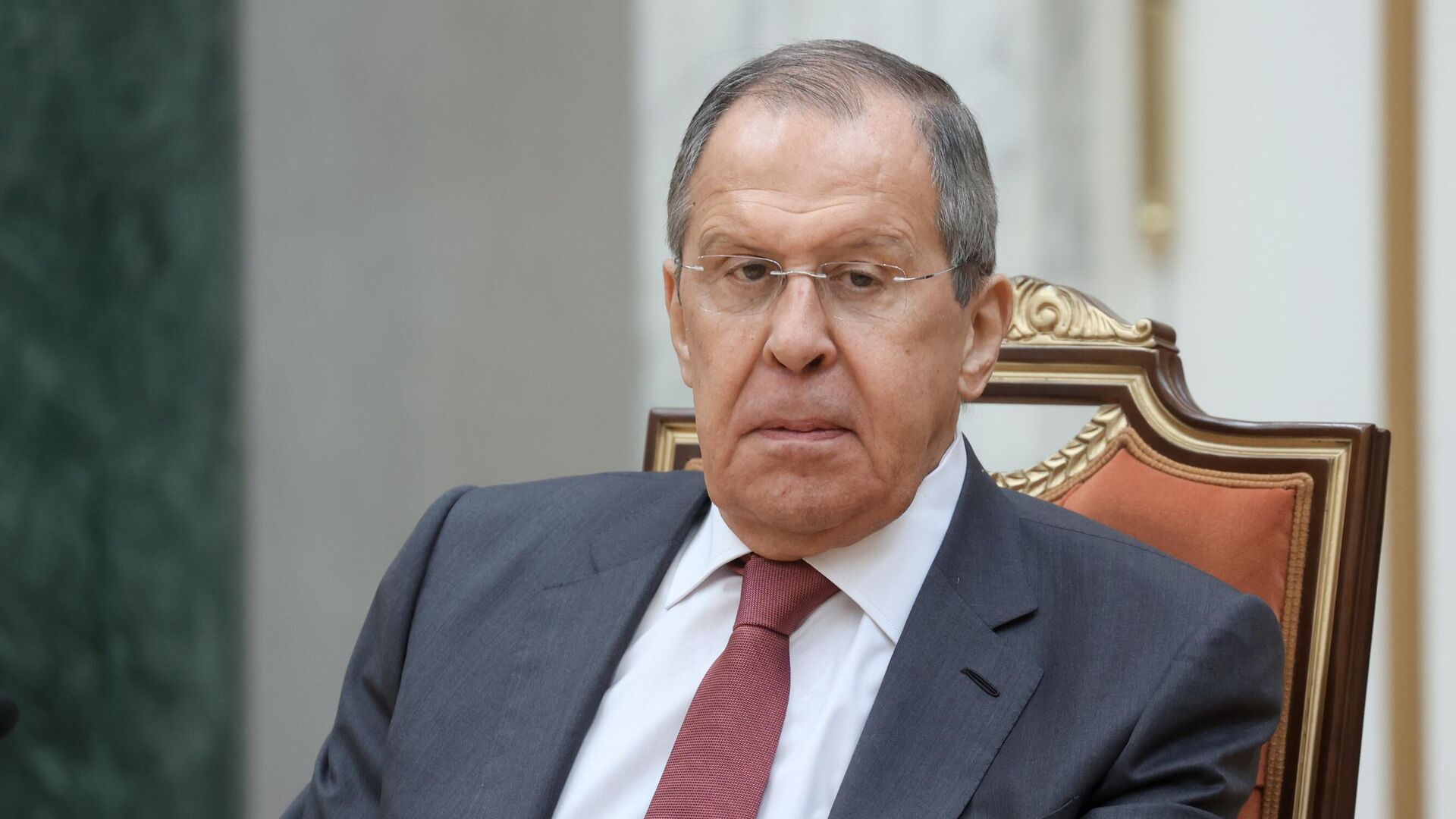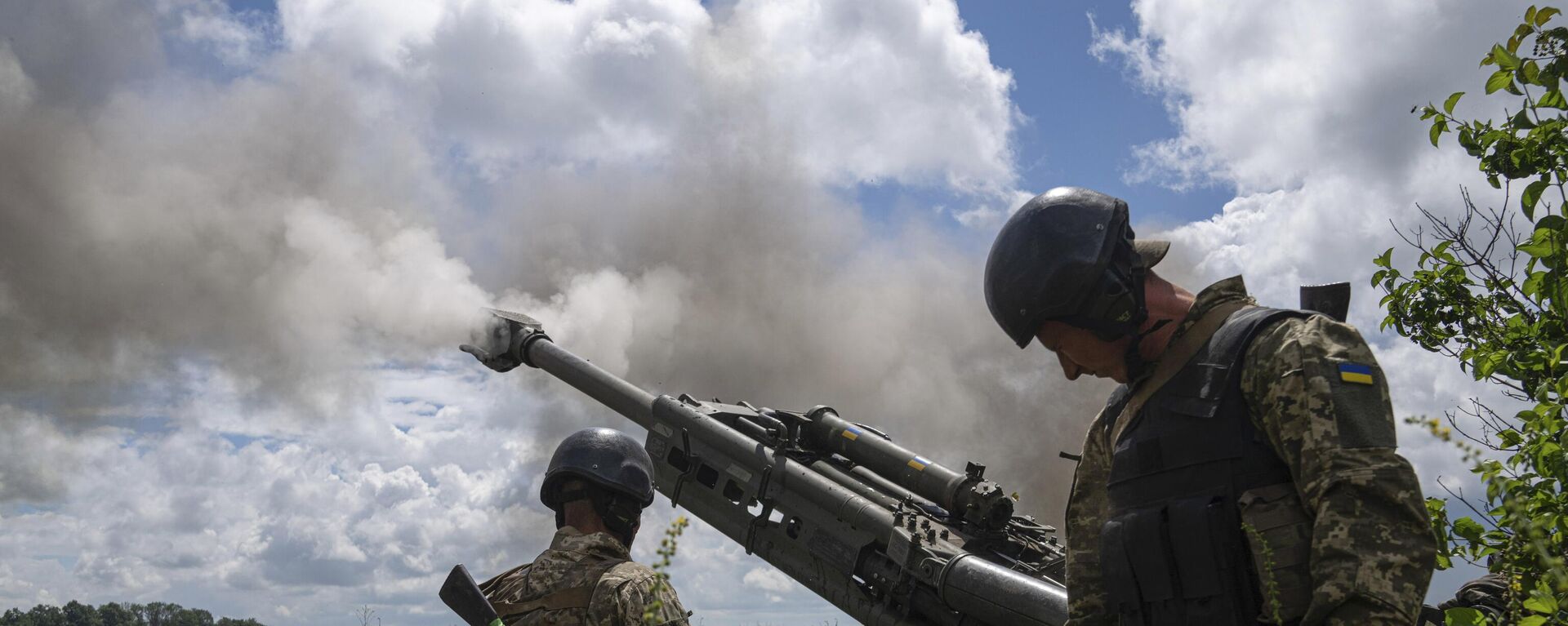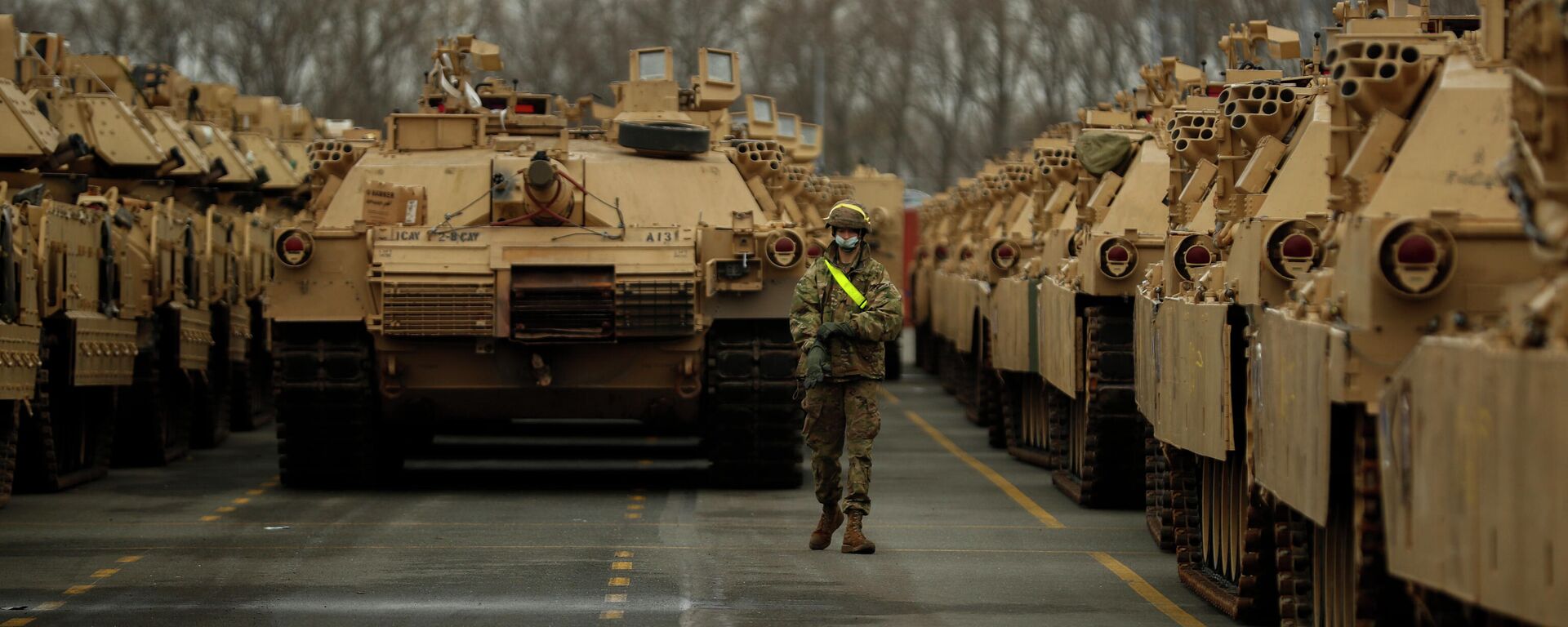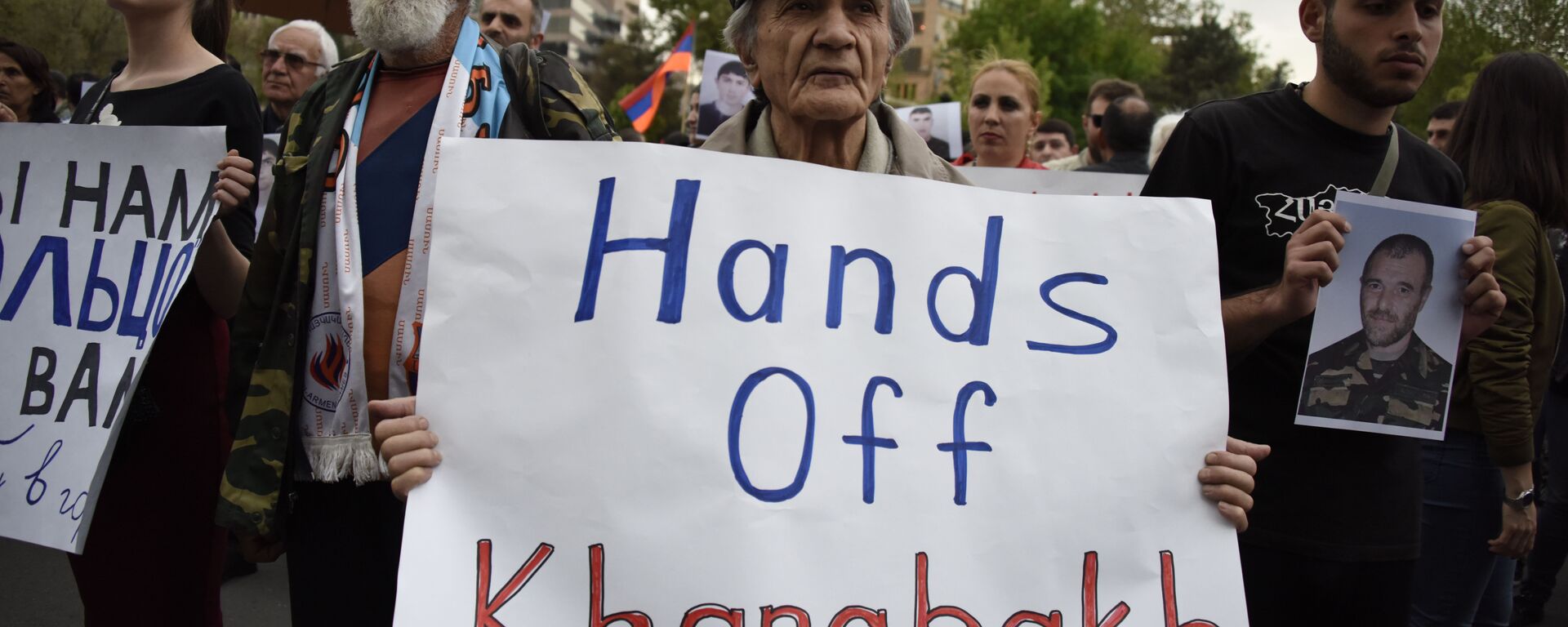https://sputnikglobe.com/20230620/natos-reluctance-to-freeze-ukraine-conflict-signifies-desire-to-fight---lavrov-1111331980.html
Russia Does Not See CSTO as Counterweight to NATO
Russia Does Not See CSTO as Counterweight to NATO
Sputnik International
NATO's position rejecting a frozen conflict scenario in Ukraine means that the alliance would rather have the crisis resolved militarily, Russian Foreign Minister Sergey Lavrov said on Tuesday.
2023-06-20T14:40+0000
2023-06-20T14:40+0000
2023-06-20T18:44+0000
ukrainian crisis
russia-nato showdown
collective security treaty organization (csto)
sergey lavrov
us arms for ukraine
world
nato
russia
china
ukraine
https://cdn1.img.sputnikglobe.com/img/07e7/06/14/1111342452_0:0:2670:1503_1920x0_80_0_0_0dc2c16b51065cfa8cfd0f27e2b0aea6.jpg
Russia does not see the Collective Security Treaty Organization (CSTO) as an adversary of NATO and wants the Eurasian bloc to focus on protecting its member states, Foreign Minister Sergey Lavrov said on Wednesday."I do not think that we should remold the CSTO into a bloc that is opposed to anyone. The CSTO has been developing based on the vested security interests of its member states. The CSTO does not seek a leading role in the Eurasian continent," he told reporters.Lavrov also noted that NATO's position on situation in Ukraine means that the alliance would rather have the crisis resolved militarily."If NATO through [Secretary General Jens] Stoltenberg once again declares that they are against what they call 'the freezing of the conflict in Ukraine', it means they want to fight. Well, let them fight, we are ready for it," Lavrov told reporters after a meeting of the Council of Foreign Ministers of the Collective Security Treaty Organization in Minsk. The top Russian diplomat pointed to multiple statements by Western officials admitting that the Ukraine crisis would long have been over if it were not for the foreign arms supplies and intelligence support to Kiev. These statements amount to admitting that Western countries are waging "hybrid, or even hot, war" against Russia, Lavrov added. Western countries have supplied Ukraine with military aid since the start of hostilities in February 2022. The support evolved from lighter artillery munitions and training in 2022 to heavier weapons, including tanks, later that year and in 2023. An international coalition has been formed recently to provide Ukraine with US-made F-16s, the fighter jets of its choice, and training. Several countries, including the UK, have volunteered to host the training of Ukrainian pilots. Moscow has warned on multiple occasions that by continuing to pour weapons into the conflict, Western countries only escalate it and risk full NATO involvement.Touching upon the issue of the actions of the European Union and the United States in the conflict between Armenia and Azerbaijan, the top Russian diplomat said that these actions are are aimed at interfering in regional affairs and infringing on Russia's legitimate interests.Moscow is not against other international players' attempts at mediation, the minister said, adding that such initiatives should pursue the goal of ensuring agreements that will reflect the balance of interests of the Armenian and Azerbaijani peoples and states.The decades-long conflict between Armenia and Azerbaijan over Nagorno-Karabakh flared up again in September 2020, marking the worst escalation since the 1990s. Hostilities ended with a Russia-brokered trilateral declaration of ceasefire signed in November 2020. The two former Soviet countries agreed to the deployment of Russian peacekeepers in the region. Occasional clashes have since occurred on the border.Speaking about US Secretary of State Antony Blinken's visit to Beijing, Sergey Lavrov said that it is an issue that concerns exclusively the US-China relationship.Blinken visited Beijing earlier this week. It was the first visit by a US secretary of state to China since 2018 and the first visit by a member of the US administration since 2019."As for Blinken's visit to China, this is an issue that concerns US-Chinese relations ... We take this as a reality that exists and that reflects, on the one hand, Washington's policy on the Chinese direction and [on the other hand] the principled position of China, which, as you know, advocates that there are no attempts to undermine China's legitimate interests, including in the region immediately adjacent to China," Lavrov told reporters after a ministerial meeting of the Collective Security Treaty Organization (CSTO) in Minsk.
https://sputnikglobe.com/20230619/kiev-politically-pushed-by-nato-to-launch-counteroffensive-despite-being-unprepared-1111302819.html
https://sputnikglobe.com/20230426/which-countries-are-sending-weapons-to-ukraine-1109854081.html
https://sputnikglobe.com/20230614/washington-trying-to-blackmail-armenians-in-karabakh-into-us-brokered-talks-heres-why-1111147719.html
russia
china
ukraine
Sputnik International
feedback@sputniknews.com
+74956456601
MIA „Rossiya Segodnya“
2023
Sputnik International
feedback@sputniknews.com
+74956456601
MIA „Rossiya Segodnya“
News
en_EN
Sputnik International
feedback@sputniknews.com
+74956456601
MIA „Rossiya Segodnya“
Sputnik International
feedback@sputniknews.com
+74956456601
MIA „Rossiya Segodnya“
russia special military operation, ukrainian crisis, russia-nato showdown, arms supplies to ukraine
russia special military operation, ukrainian crisis, russia-nato showdown, arms supplies to ukraine
Russia Does Not See CSTO as Counterweight to NATO
14:40 GMT 20.06.2023 (Updated: 18:44 GMT 20.06.2023) MOSCOW (Sputnik) - Top Russian Diplomat Sergey Lavrov spoke to journalists after a CSTO foreign ministers’ meeting in Minsk in Belarus, which is holding the rotating presidency of the bloc. The regional security organization comprises six former Soviet republics — Armenia, Belarus, Kazakhstan, Kyrgyzstan, Russia and Tajikistan.
Russia does not see the Collective Security Treaty Organization (CSTO) as an adversary of NATO and wants the Eurasian bloc to focus on protecting its member states, Foreign Minister Sergey Lavrov said on Wednesday.
"I do not think that we should remold the CSTO into a bloc that is opposed to anyone. The CSTO has been developing based on the vested security interests of its member states. The CSTO does not seek a leading role in the Eurasian continent," he told reporters.
Lavrov also noted that NATO's position on situation in Ukraine means that the alliance would rather have the crisis resolved militarily.
"If NATO through [Secretary General Jens] Stoltenberg once again declares that they are against what they call 'the freezing of the conflict in Ukraine', it means
they want to fight. Well, let them fight, we are ready for it," Lavrov told reporters after a meeting of the Council of Foreign Ministers of the Collective Security Treaty Organization in Minsk.
The top Russian diplomat pointed to multiple statements by Western
officials admitting that the Ukraine crisis would long have been over if it were not for the foreign arms supplies and intelligence support to Kiev.
These statements amount to admitting that Western countries are waging "
hybrid, or even hot, war" against Russia, Lavrov added.
Western countries have supplied Ukraine with military aid since the start of hostilities in February 2022. The support evolved from lighter artillery munitions and training in 2022 to heavier weapons, including tanks, later that year and in 2023. An international coalition has been formed recently to
provide Ukraine with US-made F-16s, the fighter jets of its choice,
and training. Several countries, including the UK, have volunteered to host the training of Ukrainian pilots. Moscow has warned on multiple occasions that by continuing to pour weapons into the conflict, Western countries only escalate it and risk full NATO involvement.
Touching upon the issue of the actions of the European Union and the
United States in the conflict between Armenia and Azerbaijan, the top Russian diplomat said that these actions are are aimed at interfering in regional affairs and infringing on Russia's legitimate interests.
"Unfortunately, in what the United States is doing now, and in what the European Union is doing now, we see more of a desire to interfere in the region, a desire to press the legitimate interests of the Russian Federation and a desire to establish itself as a force that will play an almost decisive role here than to help negotiate," Lavrov told reporters.
Moscow is not against other international players' attempts at mediation, the minister said, adding that such initiatives should pursue the goal of ensuring agreements that will reflect the balance of interests of the Armenian and Azerbaijani peoples and states.
The decades-long conflict between Armenia and Azerbaijan over Nagorno-Karabakh flared up again in September 2020, marking the worst escalation since the 1990s. Hostilities ended with a Russia-brokered trilateral declaration of ceasefire signed in November 2020. The two former Soviet countries agreed to the deployment of Russian peacekeepers in the region. Occasional clashes have since occurred on the border.
Speaking about US Secretary of State Antony Blinken's visit to Beijing, Sergey Lavrov said that it is an issue that concerns exclusively the US-China relationship.
Blinken visited Beijing earlier this week. It was the first visit by a US secretary of state to China since 2018 and the first visit by a member of the US administration since 2019.
"As for Blinken's visit to China, this is an issue that concerns US-Chinese relations ... We take this as a reality that exists and that reflects, on the one hand, Washington's policy on the Chinese direction and [on the other hand] the principled position of China, which, as you know, advocates that there are no attempts to undermine China's legitimate interests, including in the region immediately adjacent to China," Lavrov told reporters after a ministerial meeting of the Collective Security Treaty Organization (CSTO) in Minsk.





